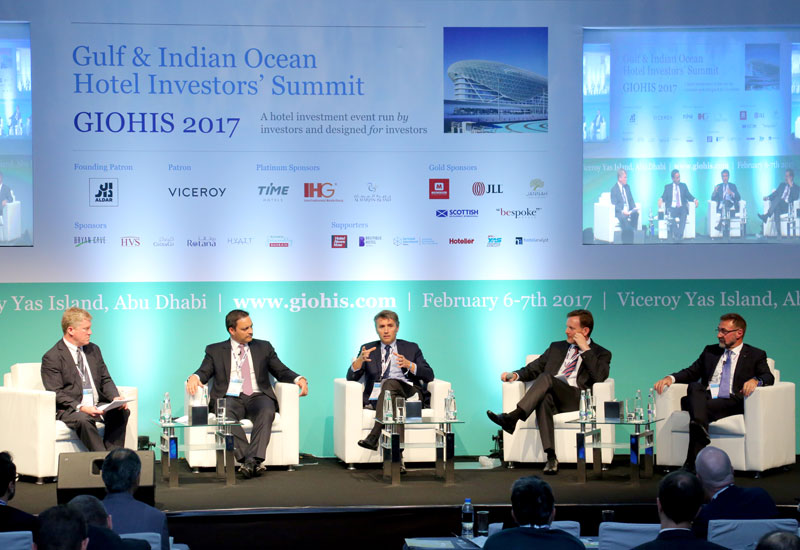The second Gulf & Indian Ocean Hotel Investors’ Summit (GIOHIS) took place at the Yas Viceroy Abu Dhabi in February 6-7. Positive sentiments from the speakers at the summit were echoed thanks to an increasing numbers of travellers from newer source markets like India, China, Far East and Saudi Arabia.
According to Alpen Capital Hospitality Report, the GCC’s hospitality market is expected to grow at a 7.6% CAGR from an estimated US $25.4 billion in 2015 to $36.7 billion in 2020. RevPAR in the UAE is anticipated to rise at an annual average of 1.8% to reach $143 by 2020. Despite a challenging period last year and a weak average rate environment in 2017, the market is likely to recover in the long-term, driven by rise in tourist arrivals stemming from upcoming mega events and government efforts.
The two-day event hosted around 250 delegates and attendees out of which 90 were speakers. HOFTEL CEO Simon Allison said in his opening remarks: “Diversification in new source markets will eventually allow a recovery in hospitality industry performance levels as emerging inbound markets gain traction.” Allison’s association is also the organiser of GIOHIS 2017.

| Advertisement |
However, Allison noted that HOFTEL’s owner members are all concerned about the long-term trends in the sector, where large hotel brands are consolidating into giant travel companies to combat the marketing power of the online travel agents, which are meanwhile strengthening their grip on the online booking market.
Meanwhile, JLL SVP MENA, hotels and hospitality group Marko Vucinic was part of the panel ‘Deals in the Region in 2016’. He said: “The UAE market will remain under pressure in the short-term, while in the long-term we expect more positive sentiment. The UAE is currently building its place on the international map with the addition of new leisure, entertainment and tourist offerings.”
Moderating a panel on ‘Africa — a fresh horizon dawning…’ owner of W Hospitality Trevor Ward said: “There is plenty of opportunity in the African continent. African countries that have diversified economies stand in good stead to benefit from tourism and hospitality.”Speaking about investment risk in the Indian Ocean and drawing similarities between the African continent, Mauritius Co
mmercial Bank deputy CEO Raoul Gufflet said: “If I have to talk about risks in Mauritius then we can immediately link those to the African continent. Some of the issues are high development costs, and it is a scenario the Mauritius market has already been through. The industry is now mature and developers are aware of how to price the development of a resort, promoters know the cost of building a resort in Mauritius as compared to the Maldives and so on.”
Speaking about challenges in Africa, Dream Hotels managing director Bani Haddad said: “I learnt to be patient when I stopped working in the Middle East region and started working in Africa. It might be a generalised statement, but it is the case across 80% of the continent. There are delays across pre-planning, construction and operation. In one case an owner questioned our requirement of a pre-opening budget.”









 Search our database of more than 2,700 industry companies
Search our database of more than 2,700 industry companies









